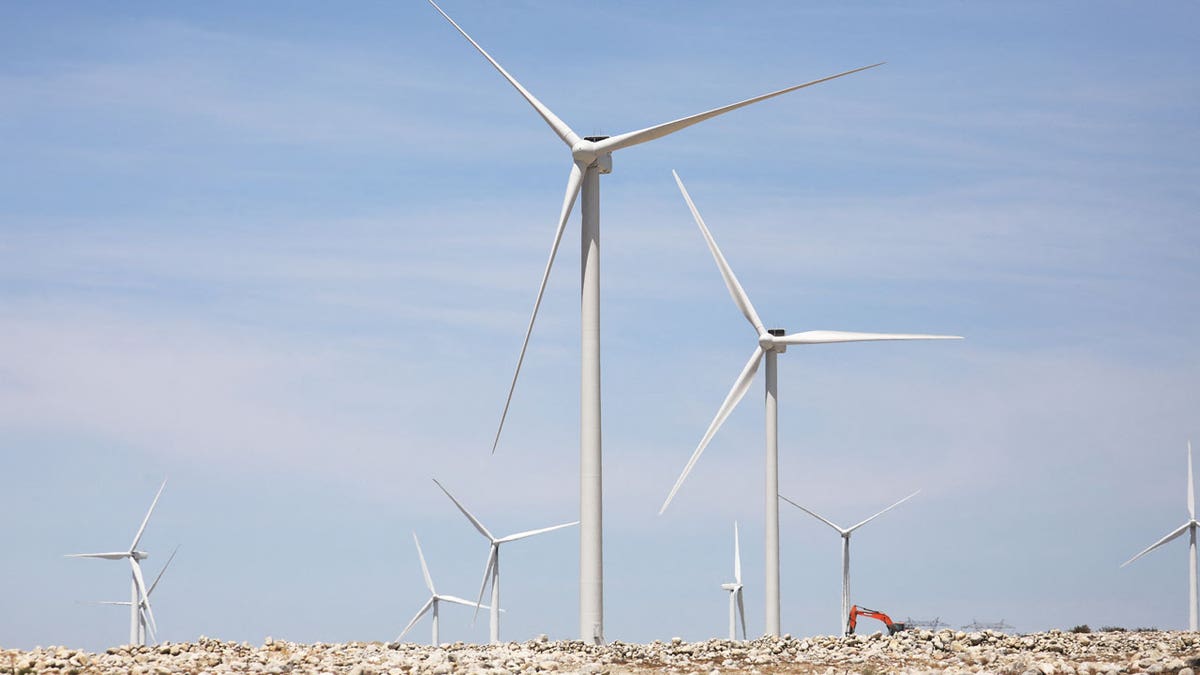Green energy companies buying land for solar farms sparks debate
Fox News’ Mark Meredith reports form Richmond, Va., on the debate surrounding leasing farm land for solar projects.
In politics, there often seems to be little we can agree on. Increasingly, however, Americans are inching toward consensus on what was once a hot-button issue: climate change. Recent polling from my organization, the American Conservation Coalition, in partnership with pollster Frank Luntz, shows that voters ranked climate change second as the "most urgent crisis" to address on the heels of midterm elections – just behind affordability.
Polling also shows that Americans were vocal in supporting investments in renewable energy and the expansion of nuclear power. While these measures are certainly worth pursuing, there’s a roadblock: permitting reform.
In layman’s terms, permitting reform refers to the process by which construction and development projects receive government approval and necessary permits. The current permitting process for new energy projects is slow, cumbersome, and often ineffective. It hinders the growth and development of clean energy technologies, with an average review time of 4.5 years and added costs to the tune of millions. Reform efforts aim to streamline the process so that projects can be completed more quickly and at a lower cost.
OR BANS SALES OF NEW GAS-FUELED VEHICLES BY 2035
The unfortunate reality is that the term means very little to the everyday American.

Wind turbines in Palm Springs, Calif., one of several western states facing a potential energy crisis due to increased demand for renewable power not tracking with production. (REUTERS/David Swanson)
While not the most popular or exciting, this wonky policy topic is an essential solution to a challenge that is top of mind for most Americans. You won’t see a protest sign demanding "permitting reform now" alongside "end fossil fuels" at a march or rally anytime soon. Still, the approach aligns with what Americans want: a balance between economic priorities and environmental concerns.
Republicans, specifically, should support permitting reform efforts as part of their commitment to free market principles and American competitiveness. After all, in the greatest country in the world, we must build cleaner, faster. The United States is a hub for innovation and cutting-edge technology, and we also have some of the highest environmental standards in the world. By streamlining our permitting process, we can create a more-efficient system that will help pave the way for a more sustainable and prosperous future.
CLICK HERE TO GET THE OPINION NEWSLETTER
On one hand, streamlining regulations can help to stimulate economic growth. Through regulatory certainty, permitting reform makes it easier for businesses to develop clean energy projects. This drives investment and innovation into the sector, in turn creating jobs for American workers. But job creation isn’t the only economic benefit to permitting reform – by reducing red tape and bureaucracy, it’s easier for energy companies to operate and compete, ultimately driving down costs for consumers.
On the other hand, these economic advantages come coupled with environmental benefits. Most obviously, increased domestic production means reducing emissions. While promoting energy independence, we can reduce our reliance on foreign nations. By fostering the growth of domestic clean technologies, we can improve our energy security and reduce our vulnerability to global market fluctuations.
The current permitting process for new energy projects is slow, cumbersome, and often ineffective. It hinders the growth and development of clean energy technologies, with an average review time of 4.5 years and added costs to the tune of millions.
CLICK HERE TO GET THE FOX NEWS APP
Policy opportunities that bring together both sides of the aisle are rare, yet they are what Americans want. When asked what type of change respondents want to see in Washington and Congress, 40% called for common-sense solutions, while only 15% called for transformational change. When the prospect of collaboration presents itself, we must seize the opportunity.
Overall, permitting reform is a rare win-win for both the economy and the environment. To address climate change, we need to streamline permitting now – progressives, liberals, moderates and conservatives should all be on board. If not, our climate goals will remain just that: goals.










































